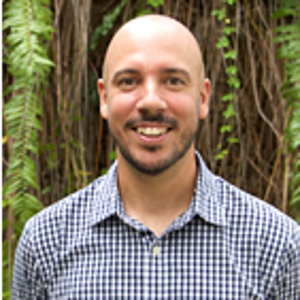Objectives
Abstract: Over 20 million tons of mineral dust from Africa are transported every year by the Trade Winds over the Atlantic Ocean, reaching South and North America, Caribbean Sea nations, and US territories every year. These dust aerosol particles affect climate, weather, and ecosystems, including coral reefs, forests, and human populations. Saharan Dust is considered a natural source of air pollution and is a significant public health problem due to exacerbation on respiratory conditions and cardiovascular diseases. Dust clouds in Puerto Rico are positively associated to PM2.5 and apparently contributes to an increase in cause-specific mortality in the Caribbean and Puerto Rico. Saharan Dust Clouds could contain minerals, organic matter, marine salts, viruses, and bacteria reaching us in the Americas mainly from the Sahara and Sahel desserts. This project lead by the University of Puerto Rico and co-lead by the University of South Florida is funded by NASA-Health and Air Quality Program. Our team is co-designing with multiple agencies and practitioners an Air Quality Monitoring System to improve Early Warning System that integrates data from NASA Earth observing satellites, in situ, and modeled weather information, and public health data. The experimental Monitoring System is being a crucial component in decision making during Watches and Advisories process for end-users and practitioners such as the Puerto Rico Department of Health, National Weather Service-San Juan Office.
 Short bio: Dr. Pablo Méndez-Lázaro is currently an Associate Professor at the Department of Environmental Health of the University of Puerto Rico, Graduate School of Public Health. He is an active Member of the Puerto Rico Climate Change Council, and one of the six (6) scientists nominated by the Governor of Puerto Rico and confirmed by both the Senate and House of Representatives of Puerto Rico for the Executive Committee on Climate Change Adaptation Plan. Pablo is currently PI and Co-PI on NASA research projects exploits new technologies in ways that benefit all segments of socio-ecological and technological systems by applying Earth Observing Data and Remote Sensing to research on public health and vulnerable populations. Recently he has being invited by the US Global Change Research Program to serve as the Chapter Lead for the US Caribbean Chapter of the Fifth National Climate Assessment (NCA5).
Short bio: Dr. Pablo Méndez-Lázaro is currently an Associate Professor at the Department of Environmental Health of the University of Puerto Rico, Graduate School of Public Health. He is an active Member of the Puerto Rico Climate Change Council, and one of the six (6) scientists nominated by the Governor of Puerto Rico and confirmed by both the Senate and House of Representatives of Puerto Rico for the Executive Committee on Climate Change Adaptation Plan. Pablo is currently PI and Co-PI on NASA research projects exploits new technologies in ways that benefit all segments of socio-ecological and technological systems by applying Earth Observing Data and Remote Sensing to research on public health and vulnerable populations. Recently he has being invited by the US Global Change Research Program to serve as the Chapter Lead for the US Caribbean Chapter of the Fifth National Climate Assessment (NCA5).
Speakers
Dr Pablo Mendez-Lazaro, Associate Professor, Department of Environmental Health, University of Puerto Rico, Graduate School of Public Health.
